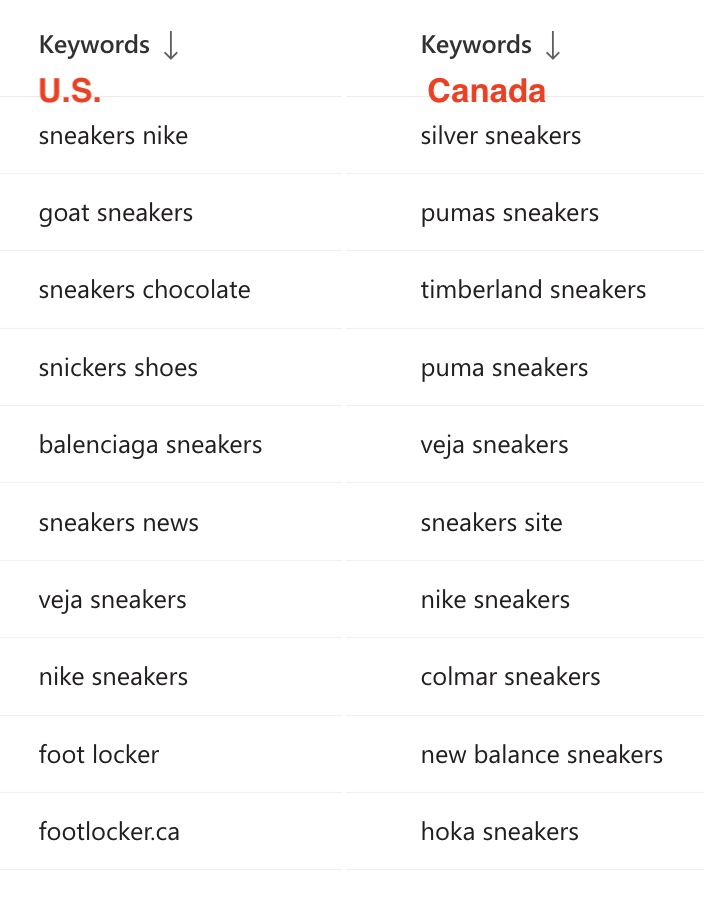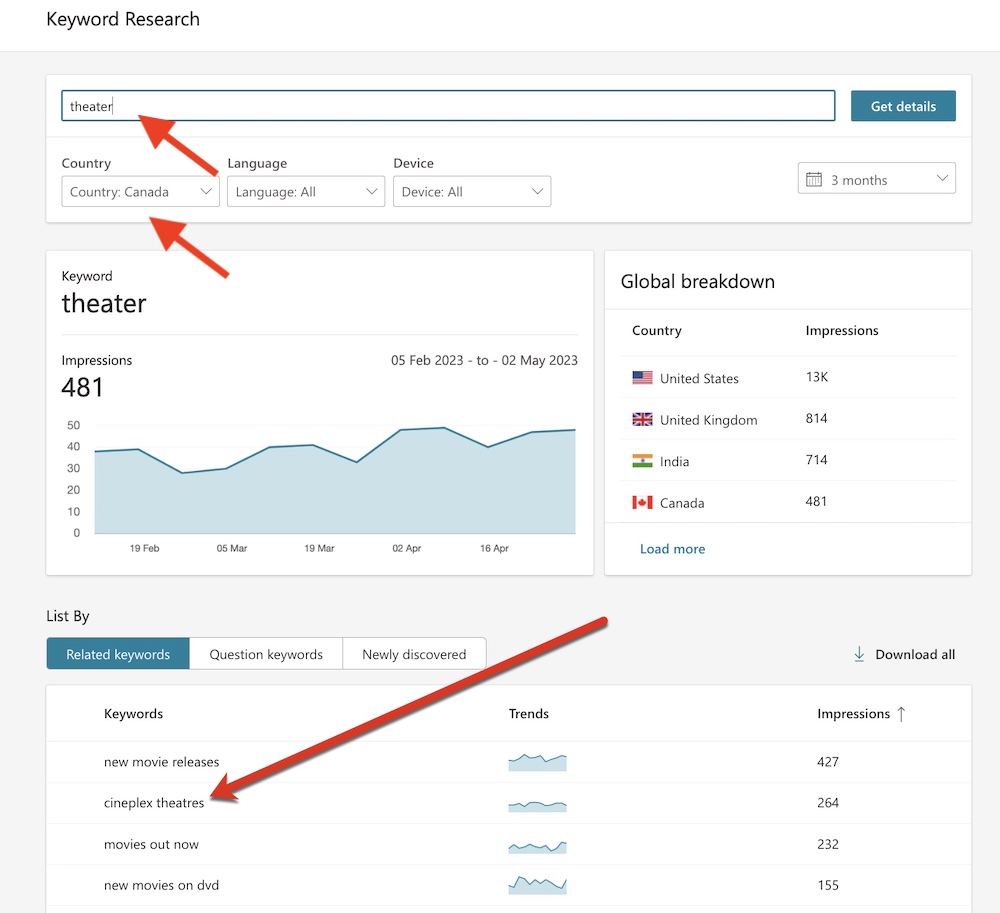Bing Webmaster Tools contains helpful search-engine-optimization features that few folks are aware of. One is the Keyword Research tool, which provides a lot of helpful data for free.
Here’s my analysis.
Long-tail Keywords
Extending a keyword with modifiers is why search optimizers turn to keyword research. Bing’s tool helps with that task. Long-tail keywords tend to have less competition and clearer search intent. Finding more of these will help diversify organic traffic.
To use the tool, enter your primary term, as shown in the screenshot below. Then click any keyword to see its long-tail versions. You can sort the chart by “impressions,” which represents search volume. Below the chart are Bing’s top 10 ranking URLs for that search query. You can also select and export keywords as a CSV file.
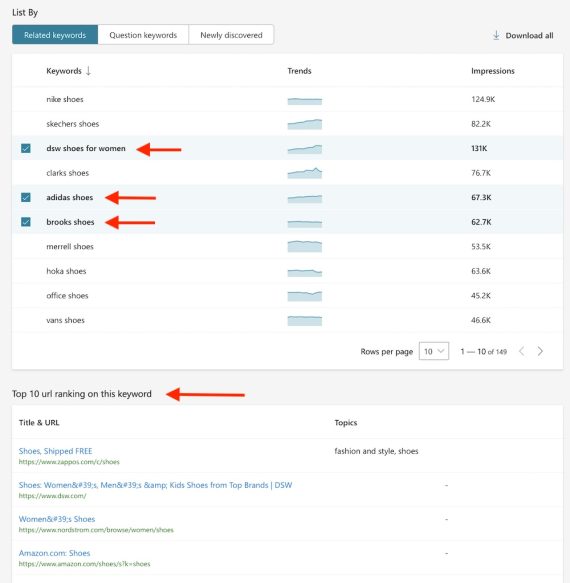
Click any keyword to see Bing’s long-tail versions. Below the chart are Bing’s top 10 ranking URLs for that query. Click image to enlarge.
Related Keywords
This is my favorite feature because it uncovers keywords containing my core term I hadn’t considered. For example, if a main keyword phrase is “hiking bags,” Bing suggests “hiking backpacks” and “hiking rucksacks” as additions. Both of those could generate extra traffic.
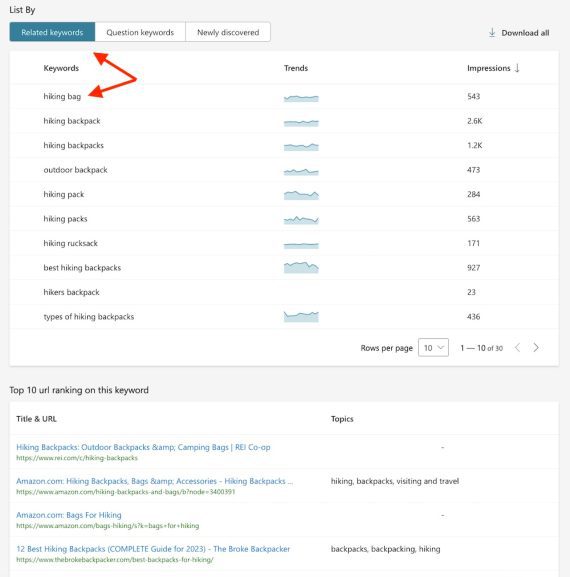
Bing suggests “hiking backpacks” and “hiking rucksacks” as additions to “hiking bag.” Click image to enlarge.
Keyword Demand
Bing uses “impressions” versus Google’s “search volume” to estimate how many times a keyword is searched. But Bing doesn’t much explain what counts for an impression. Likely it’s a single season wherein a keyword is entered in the search box, and results are loaded.
Regardless, Bing’s Keyword Research tool reports “impressions” for each query within a chosen timeframe. Unlike Google, which tends to show the prior year’s data, Bing appears to show the past week or month. It’s handy for estimating a keyword’s demand.
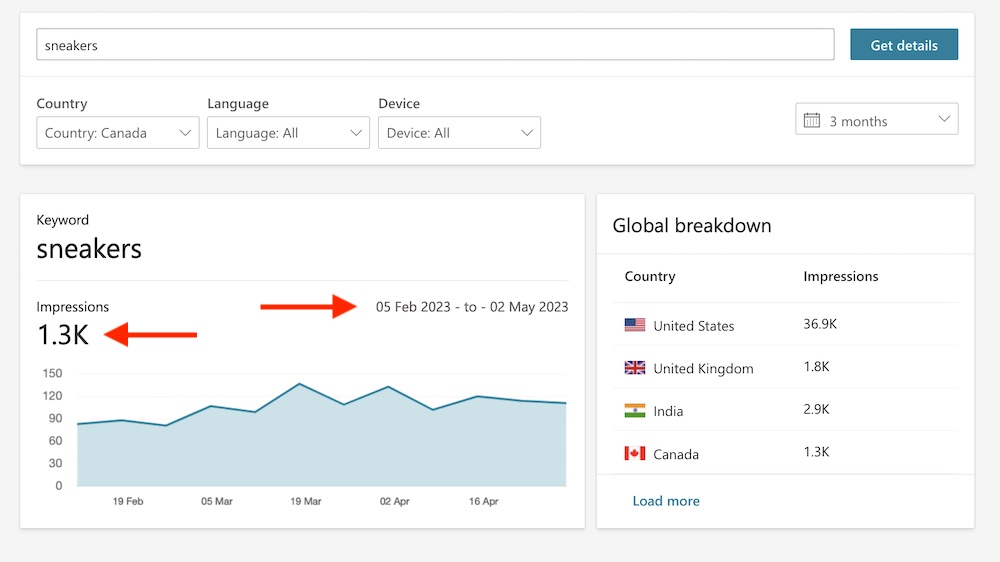
Bing’s “impressions” is similar to Google’s “search volume” — an estimate of how many times a keyword is searched. This example is for the keyword “sneakers.” Click image to enlarge.
Keyword Trends
Bing’s reporting of recent “impressions” is also a good way to identify (and predict) keyword search trends.
Scanning a list of keywords with impressions provides quick insights into rising or declining popularity.
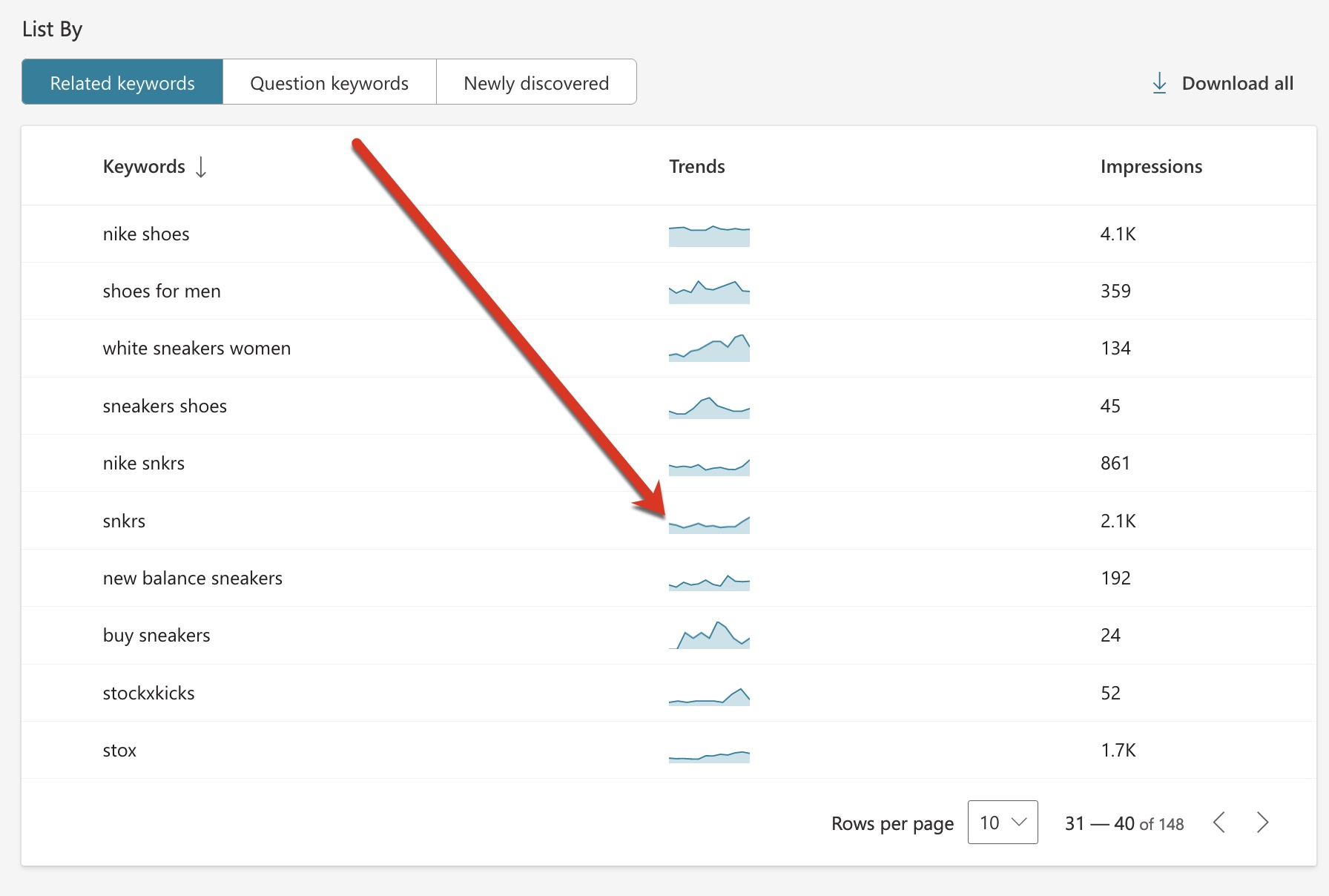
Bing’s reporting of recent “impressions” can identify (and predict) keyword search trends. Click image to enlarge.
Trends by Country
Bing’s Keyword Research is helpful for merchants selling internationally. Enter a search term, choose a country, and Bing will load unique keyword suggestions based on that locale.
For example, note the search patterns below for “shoes” in the U.S. and Canada. Popular brands differ in those countries. The data helps marketers prioritize keywords (and other forms of marketing) based on the country they are targeting.
For example, thanks to Bing, I now know that “cineplex” is one of Canada’s most popular movie venues.
Shortcomings
No matter the keyword, Bing Keyword Research never showed me anything in the “Question keywords” or “Newly discovered” tabs. These two sections were empty throughout my tests.
The tool doesn’t contain many explanations or documentation. I’m still not certain what an “impression” stands for or how Bing identifies “topics” for some results but not others.
Hence I don’t plan on using Bing by itself. If it reports an interesting keyword search trend, I’ll confirm with Google Trends. I’ll check Google’s search volume before relying on Bing’s “impressions” estimate.
Nonetheless, Bing’s Keyword Research tool is a credible standalone choice if money and time are tight.
